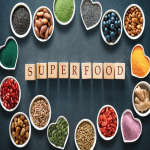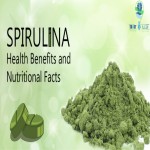Nutrition in Down’s syndrome
What is Down’s syndrome?
Down’s syndrome is an inherited condition that causes developmental problems, mental and physical, varies from mild to serious.
People with Down’s syndrome are born with an extra chromosome.
This extra chromosome leads to a host of problems that affect them both mentally and physically.
Down’s syndrome is a lifelong condition, but proper early care can make a great difference in helping them for a better life.
Causes of Down’s syndrome
Each cell in the body contains 23 pairs of chromosomes. One chromosome in each pair comes from the mother and the other from the father. But in Down’s syndrome, there is an extra copy of chromosome 21, so that people with Down’s syndrome have three copies instead of two, which leads to the appearance of symptoms.
Down’s syndrome symptoms
There are mental symptoms and physical symptoms,
Mental symptoms:
Mental abilities of people with Down’s syndrome vary from mild to moderate problems in thinking, reasoning and understanding. People with Down’s syndrome learn and acquire new skills throughout their lives, but it takes longer to reach important goals such as walking, speaking and developing social skills.
Physical symptoms:
People with Down’s syndrome tend to have certain physical traits in common. These may include:
Eyes that are angled in the outer corner, small ears, flat noses, protruding tongue, small white spots in the colored part of the eye.
Short neck, small hands and feet, short stature
Loose joints, muscle weakness.
Heart problems and difficulty hearing and seeing are common symptoms.
Down’s syndrome diagnosis
Down’s syndrome is diagnosed by a blood test; This is called a "karyotype test" that lines up the chromosomes and shows if there is an extra chromosome 21.
Down’s syndrome types
There are three types of Down syndrome
- Trisomy 21. This is the most common type, in which each cell in the body contains three copies of chromosome 21 instead of two.
- Down’s syndrome translocation. In this type, each cell contains part of an extra chromosome 21, or an extra part altogether. But it is attached to another chromosome rather than being alone.
- Down’s syndrome mosaic. This is the rarest type, with only some cells containing an extra chromosome 21.
Down’s mosaic syndrome may not have many symptoms because fewer cells contain the extra chromosome.
Proper Nutrition and Down syndrome:
- Nutrition
for women before and during pregnancy:
It is known that patients with Down’s syndrome are short in stature, are more susceptible to infections, autoimmune diseases, have hypothyroidism, and are prone to leukemia, heart defects, and later Alzheimer's disease. It was found that most of them had older mothers, including Alzheimer's patients, and also found that most of them had siblings with either Down’s syndrome, lymphoma or leukemia.
Therefore, supplementation of adequate vitamins and minerals, especially B1, is recommended before pregnancy and in the first trimester of pregnancy for mothers at risk of Down syndrome, especially older mothers. A gluten-free diet for women with celiac disease or intolerance to gluten and gliadin.
- Nutrition
for children with Down syndrome:
Children with Down’s syndrome have nutritional problems and are more likely to become obese.
But their nutritional recommendations are similar to those of the general population.
But it needs the support of parents or caregivers for children, teens and young adults with Down’s syndrome to get best results . Education about nutrition and physical activity for people with Down’s syndrome is very important, but having a role model is even more important.
Nutritional problems with people with Down’s syndrome and their solutions:
- Overweight
and obesity:
Overweight and obesity in children and adults with Down’s syndrome is a major concern. It should be addressed through a comprehensive program of nutrition and physical activity tailored to meet the specific needs of the individual. Weight gain may be due to hypothyroidism or a combination of inactivity and poor eating habits. A common symptom of Down’s syndrome is decreased muscle tone, which leads to increased fat mass and reduced muscle mass in the body. This increased fat mass, combined with the higher prevalence of obesity, puts people with Down’s syndrome at greater risk of developing type 2 diabetes and cardiovascular disease. Therefore, developing a diet and exercise plan to control weight is one of the most important steps in addressing these health concerns.
Weight control tips :
- Eat frequent small meals.
- Eat a variety of fruits, vegetables, whole grains, lean protein, and low-fat dairy.
- Limit excessive snacking, especially processed foods that contain color additives, flavoring agents, and preservatives.
- Drink more water and less sugary drinks.
- Do a lot of exercise for at least 15-30 minutes.
- Participation in the nutritional plan through:
1. Help with grocery shopping.
2. Participate in planning the menu for food purchases.
3. Make suggestions for what to eat during the week so caregivers should help make thoughts healthy.
4. Gather recipe ingredients, help prepare food, set the table, or wash dishes.
- Diabetes
It is common for people with Down’s syndrome to be diagnosed with type 1 diabetes at a young age, so caregivers of people with Down’s syndrome should look out for the following symptoms of diabetes:
Increased thirst, frequent urination, unexpected weight loss, tiredness or extreme tiredness.
Type 1 diabetes is treated with diet and medication to return blood sugar to a normal level. Diabetes education is very important for caregivers and people with Down’s syndrome
Celiac disease
People with Down’s syndrome are more likely to have celiac disease. Celiac disease is an autoimmune disorder characterized by sensitivity to gluten, which is found in wheat, barley, and rye. When a person with celiac disease ingests gluten, an immune response that damages the lining of the small intestine is provoked. Celiac disease treatment is a lifelong gluten-free diet.
Constipation
People with Down’s syndrome are constipated because of muscle weakness and a quiet, slow lifestyle.
Methods of preventing and treating constipation.
- Drink water throughout the day: 6-8 glasses per day.
- Increase the amount of dietary fiber consumed each day, while drinking more water when eating foods that contain dietary fiber, such as:
1. Raw fruits and vegetables and eating the fruit without peeling.
2. Dried fruits of fig raisins, apricots and figs
3. Whole grains and their products from bran, whole wheat flour, whole corn flour, wheat bran cereals (all bran, bran sprouts, bran bran), bran flakes (raisin bran), grated wheat.
4. Eat small, frequent meals during the day.
Thyroid disease
Studies have shown that 13-55% of people with Down’s syndrome will develop thyroid problems at some point in their lives. They are more likely to have Hashimoto's thyroiditis to cause hypothyroidism, Graves' disease to cause hyperthyroidism, or dysmorphogenesis, which is hypothyroidism from birth.
Signs of hyperthyroidism: Changes in sleeping habits, changes in energy, feeling hot, or unexpected weight loss.
Signs of hypothyroidism (underactive thyroid): Lack of energy, tiredness, feeling cold, or unexpectedly gaining weight. Many nutrients are needed to improve thyroid function, however, iodine, vitamin D, selenium and B12 are among the most beneficial.
Gastroesophageal reflux disease (GERD)
GERD is a condition in which stomach contents back up into the esophagus causing many uncomfortable symptoms including heartburn, sore throat, chest pain and difficulty swallowing. GERD is a concern for children and adults with Down’s syndrome and can interfere with nutrient intake.
To reduce the symptoms of GERD:
- Eat frequent small meals.
- Wait at least an hour after a meal to exercise.
- Do not lie down after eating.
- Drinking before or after meals, not during food.
- Avoid spicy foods, citrus fruits, and caffeine, chocolate and dairy.
- Lose weight.









